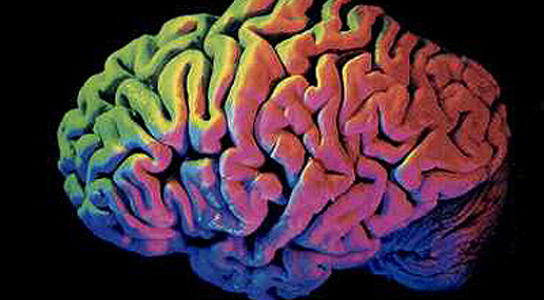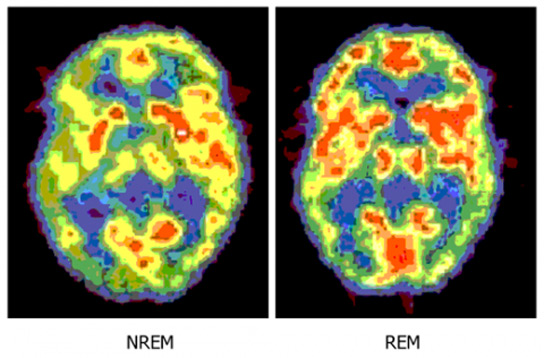
Scientists have developed a technique to erase fears.
Fear memories are formed when humans associate things with strong, negative emotional responses. A team of scientists from Uppsala University in Sweden have developed a technique that allows them to erase new emotional memories from the brain, making it possible to erase your fears.
The scientists published their findings in the journal Science. Memories in the brain are created by consolidation. At first, the memory is unstable, but proteins form in the brain to fix it into place. By disrupting this process it’s possible to affect the content of a memory. Erasing emotional memories seems to be possible, when the consolidation is interrupted.

Brain scanned by PET while memory consolidation was happening during NREM and REM sleep cycles
The team showed their subjects neutral images while they simultaneously administered electric shocks. This is basically how a fear memory is created, by associating an image with pain. Later, when the participants were shown the picture again, they exhibited a level of fear.
The researchers then tried to disrupt the reconsolidation in half of their subjects by repeatedly showing them the image, without any electric shock, whilst the brain tried to fix the memory in place. The results indicate that these participants weren’t scared of the image when they saw it again. This was how scientists erased the fear associated with the memory.
The scientists hope to use this technique to treat anxiety issues like phobias, PTSD, and panic attacks.
Reference: “Disruption of Reconsolidation Erases a Fear Memory Trace in the Human Amygdala” by Thomas Agren, Jonas Engman, Andreas Frick, Johannes Björkstrand, Elna-Marie Larsson, Tomas Furmark and Mats Fredrikson, 21 September 2022, Science.
DOI: 10.1126/science.1223006









Be the first to comment on "Disruption of Memory Reconsolidation Erases a Fear Memory Trace"